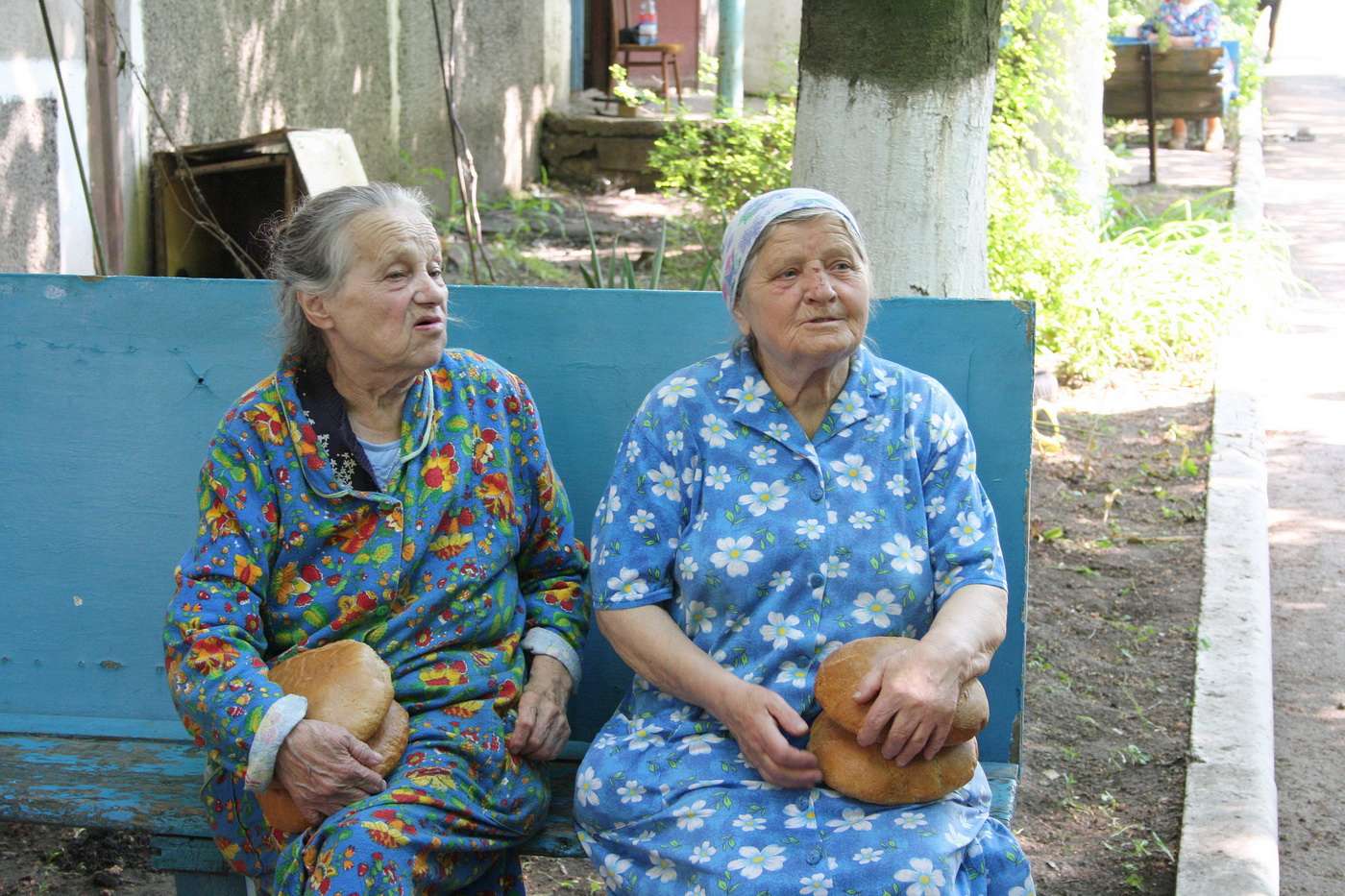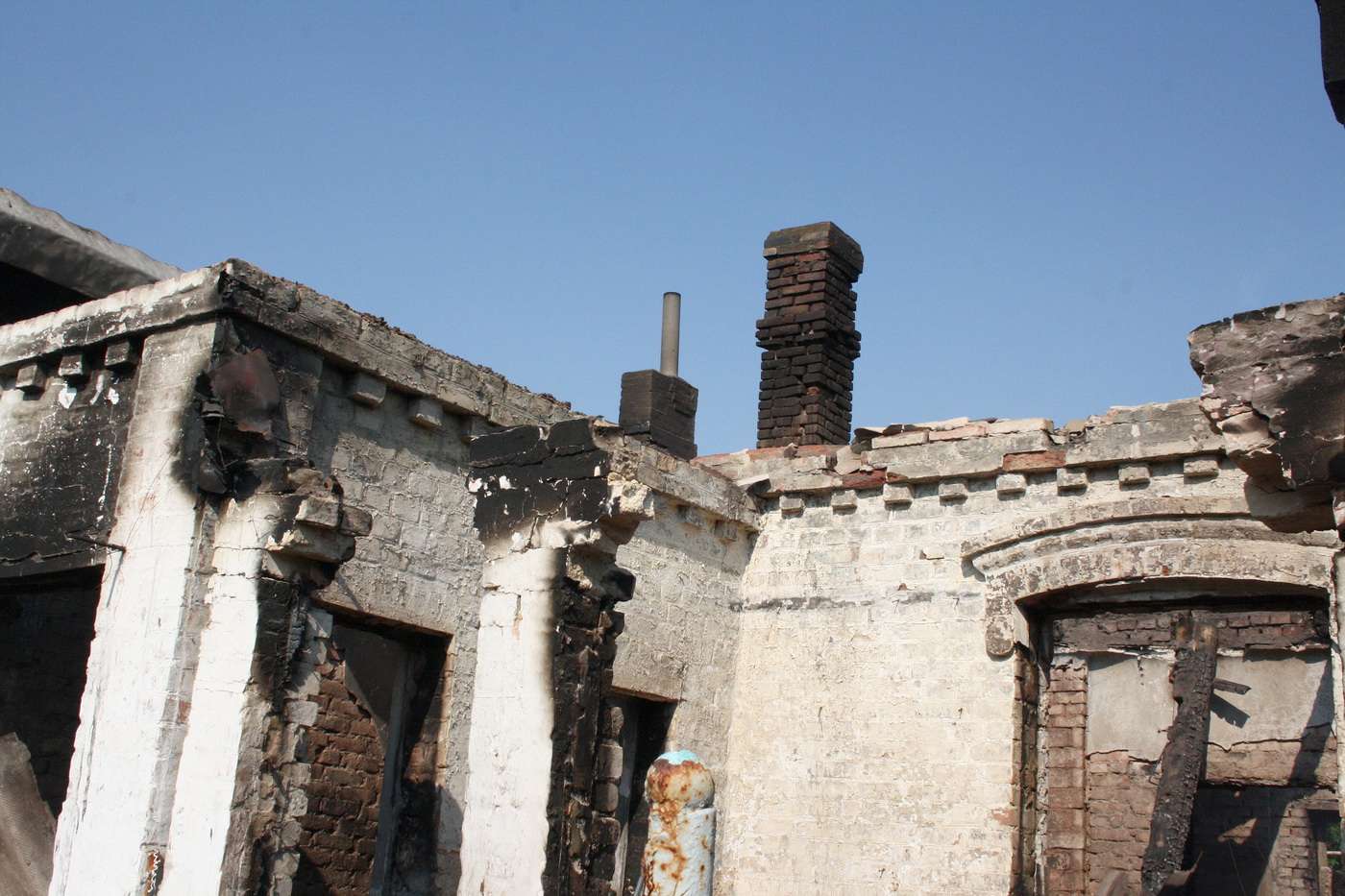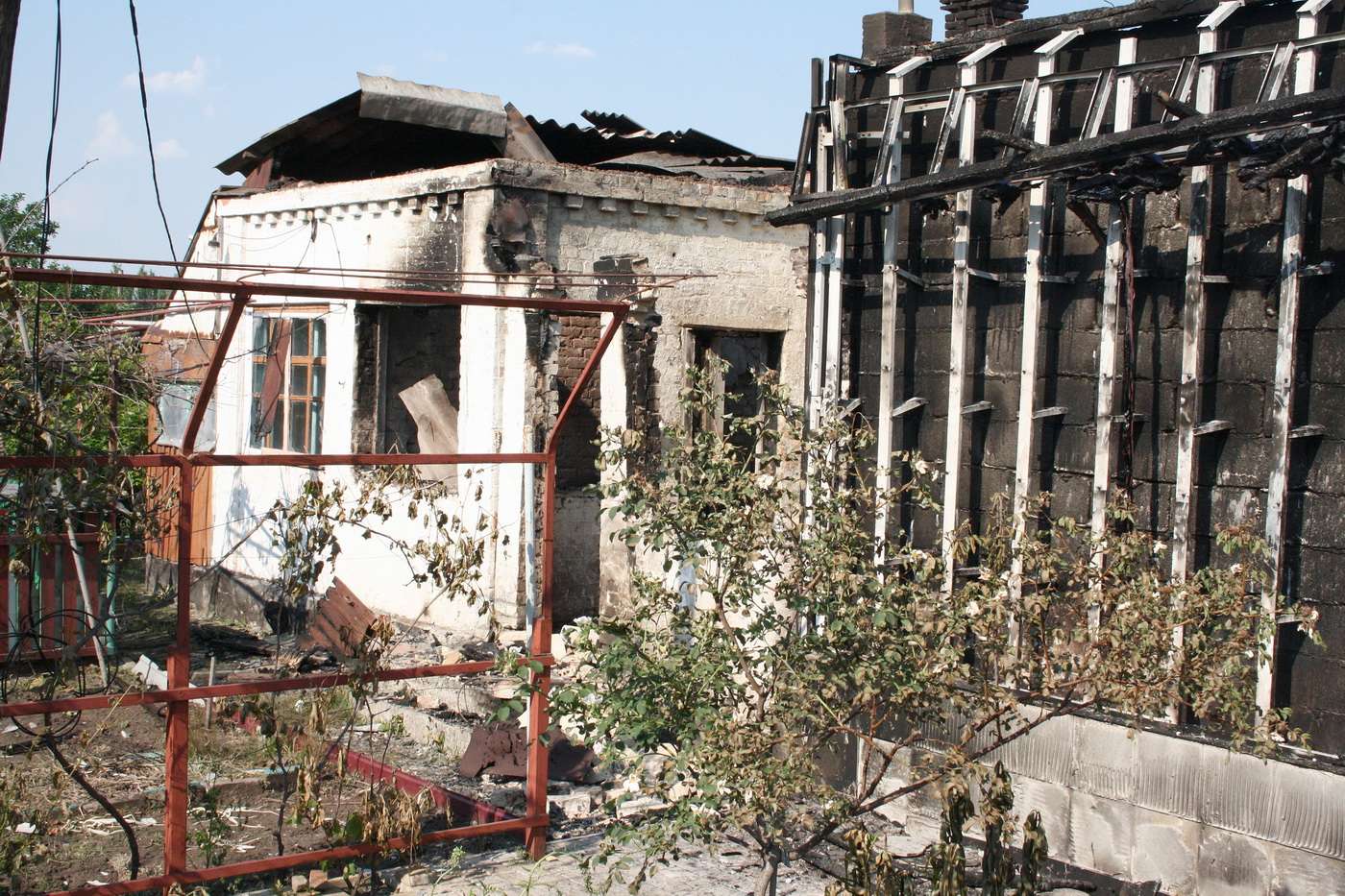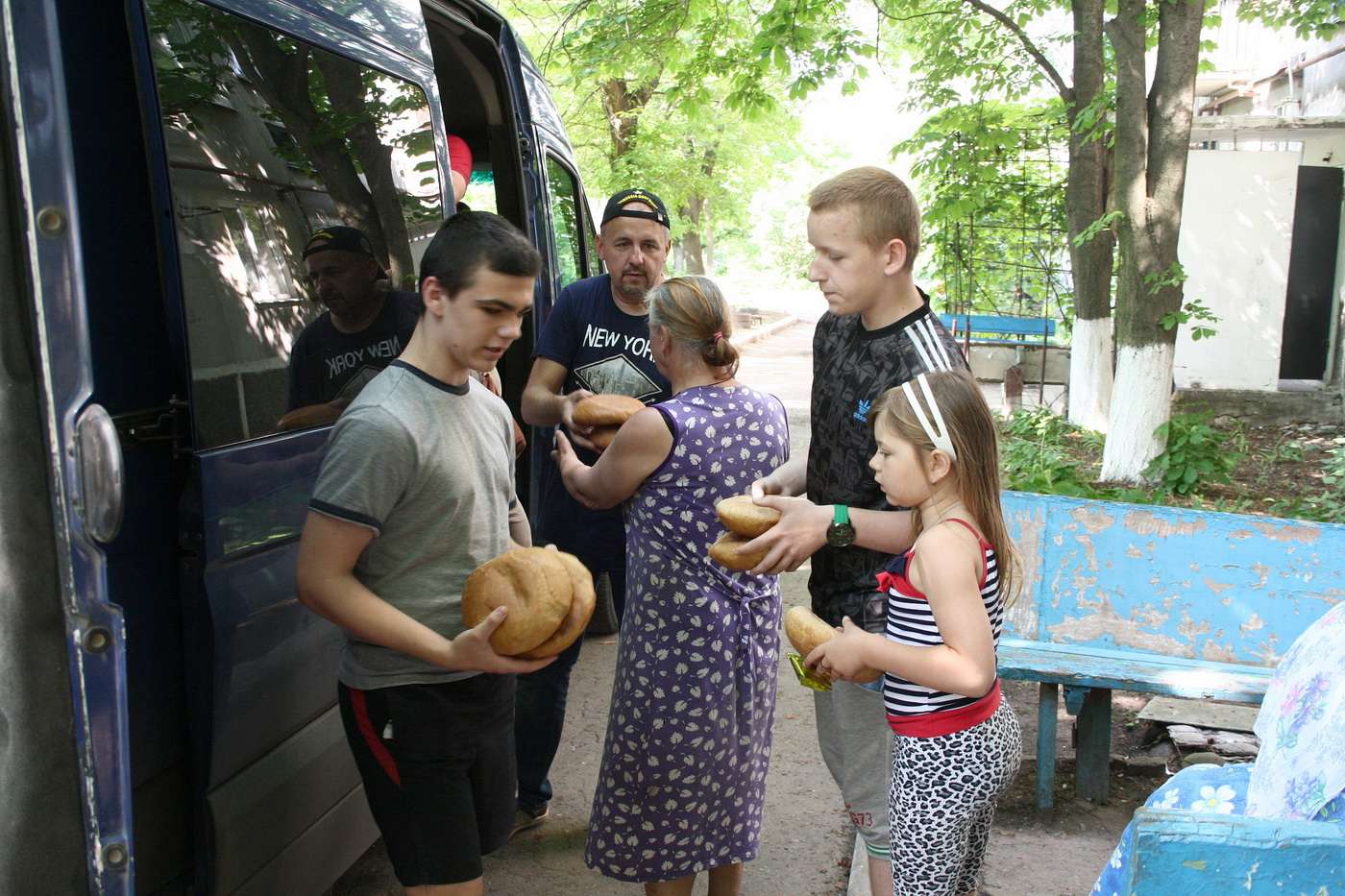No one waited for us in Krasnogorovka. Nobody imagined that anyone would be able reach them after 12 hours of shelling from mine throwers and missile launchers. Our team also didn’t believe we would make it. Everybody thought the military would stop us and not let us pass through the dangerous area. There were enough videos on the Internet in order to understand that it could be impossible to enter the town. The local hospital, school and many homes were burning.
I don’t know which worked more, the prayers or the words or power used by our fearless leader to persuade the soldiers that we really need to reach the city. Our leader Galina pleaded, “Our friends are there… Elderly people… Children…Nobody answers our calls… We can’t reach them by the internet… We are bringing bread, medicines…
I understood that the military would not want to risk the lives of our volunteers and perhaps they thought us stupid. But there were others among them who thought differently and let us through. Our “caravan” of two vans loaded with goods somehow was escorted through. We were led not the way we had gone before because it was impossible to go through Maryinka, where heavy fighting took place now. We instead traveled by broken roads, dusty paths, and narrow country roads, which are known to the local villagers alone. A couple of times we stopped to make sure we were not lost. At last we reached ‘our town’ that our staff from CBN’s Orphan’s Promise regularly visits several times per month. The war has given us new friends, many of whom are now closer than relatives. So we want to see them… alive.
It was quiet and hot when we arrived. The fires we’d heard of were nowhere to be seen, but the burning smell remained. There were only a few people to be found on the streets. There was no one near the local church. Our vans stopped in front of the wide steps of the church, and we could not help wondering where everyone was. Perhaps the people stayed in their homes, as they didn’t want to take the risk and decided to hide in their cellars and basements. And then the door opened…
We hugged one another, but not the way we had done before. Things had changed. It was noticeable that everyone wanted to hold you a little tighter and hold on for a moment longer. They smiled, said some words, patted each other on the back, but it was clear that the meeting was very special and precious. No one immediately said it, but we could read it in the people’s eyes: Thank you for coming … not for the sake of bread, not for the sake of the medicine … Thank you that you just arrived! Thank you for arriving now when we were pressed on all sides by fear.”
They had to speak out, to try to release the fear and anxiety they were carrying with in. We heard the following from the different sources:
“Everything was buzzing … rattling … … five-story buildings were shaking … Imagine, I was running down the street and the shells were exploding on the next street and I felt as if they were chasing me. The kids were running under the shelling and were looking for their parents. An ambulance station was burned. We had to stay in the cellar the whole day, as it was impossible to go outside. Up until this we hadn’t seen such heavy battles.”
They talk about it for many days. They will talk about it for many years to come I am certain. They will see it a thousands more times in the nightmares that awaken them. How can anyone begin to forget that rattle and fear?
We unloaded our vans and distributed the food packages and bread among the people because the military people were hurrying us along. We unloaded the food at the building that has become our distribution point. This day was odd, as no one was lined up. Previously hundreds of people were always waiting to receive our deliveries.
We had hoped that our local volunteers would distribute the bread later, so we began to unload. Then one by one people began coming towards the store from the various parts of the town. Some of the women couldn’t help but cry as they approached us.
– Stop unloading, – Galina said firmly. – We will distribute bread directly in the streets. We will go to the districts of the town that suffered from the most shelling. Go to the houses, call them to come out and get bread, talk to them and give them a hug.
1,500 loaves of bread would have been swept away within the hour a week ago. We spent several hours for the same task this time. I would rather not remember these several hours. But I will never forget them. I saw the elderly grandmas, women and children. I saw the funeral procession coming back from the churchyard (a man died from the shrapnel of a shell yesterday and was buried today). I saw the burned houses and the smoke still rising above the ashes. I saw the burned pipes, where yesterday was a roof. I saw a dog with three legs and the woman Vera who remembered so clearly the firing that took her own son last August in Krasnogorovka—he too was wounded by shrapnel.
We walked through the streets and noticed the elderberry was blossoming in huge white circles everywhere around. Do you know what that color smells like? Today I do not smell its sweetness. In Krasnogorovka it smells of ashes—lest we forget.
Dare not forget that guns are shooting and people are dying in Ukraine. Dare not forget that the children scream and cry from fear in the basements hiding their faces in their mother’s laps. Do not allow yourself to forget that someone badly needs your simple human sympathy, a loaf of bread, or a cup of oil. And do not forget to continue praying for this war to be over.
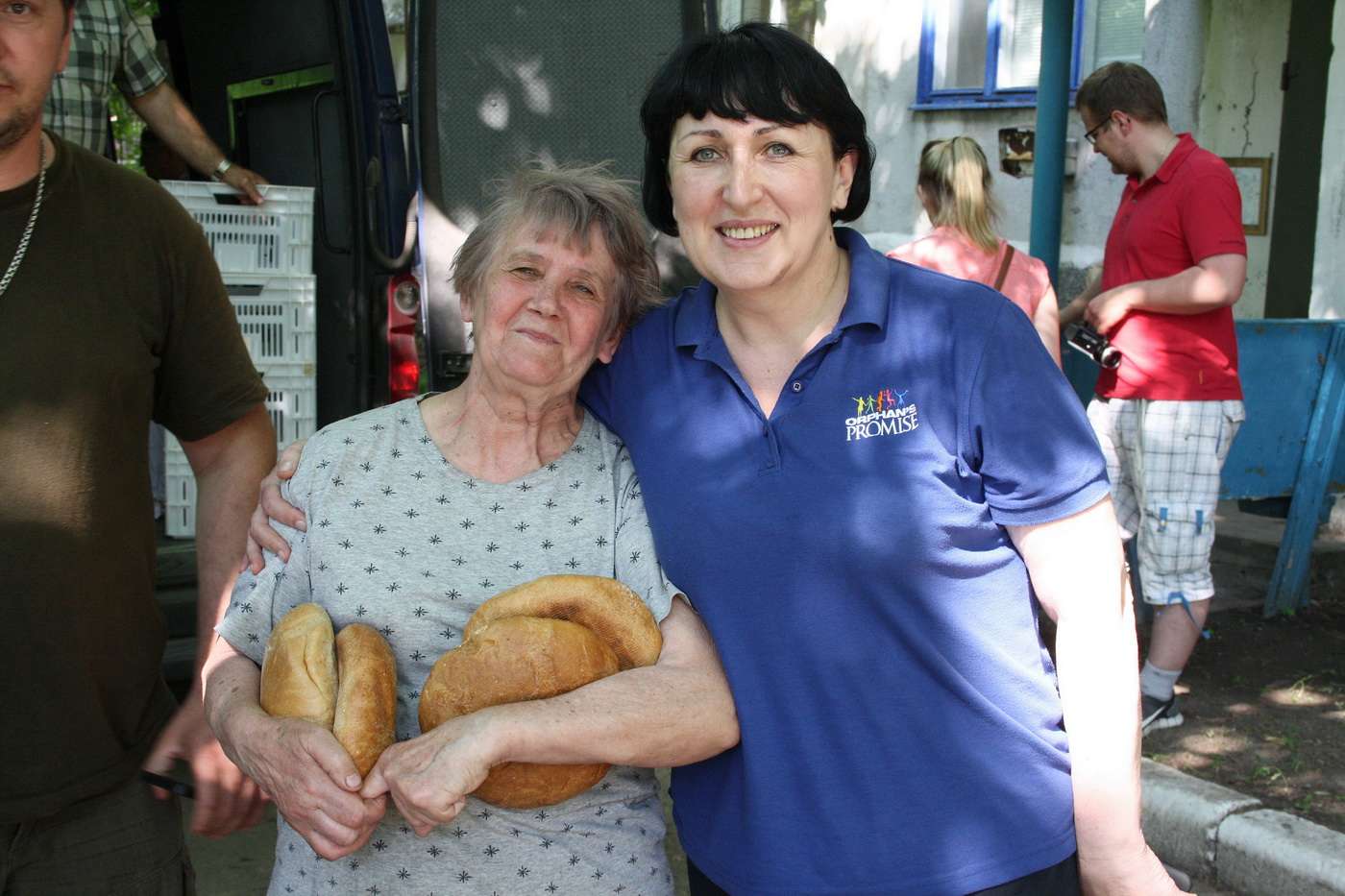
Gennady Novikov, press-center of “Emmanuil” Association
To transfer financial support, enter here


